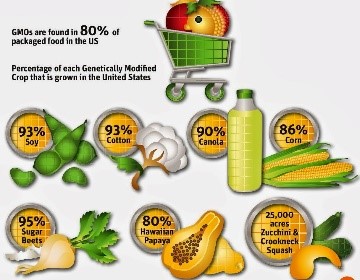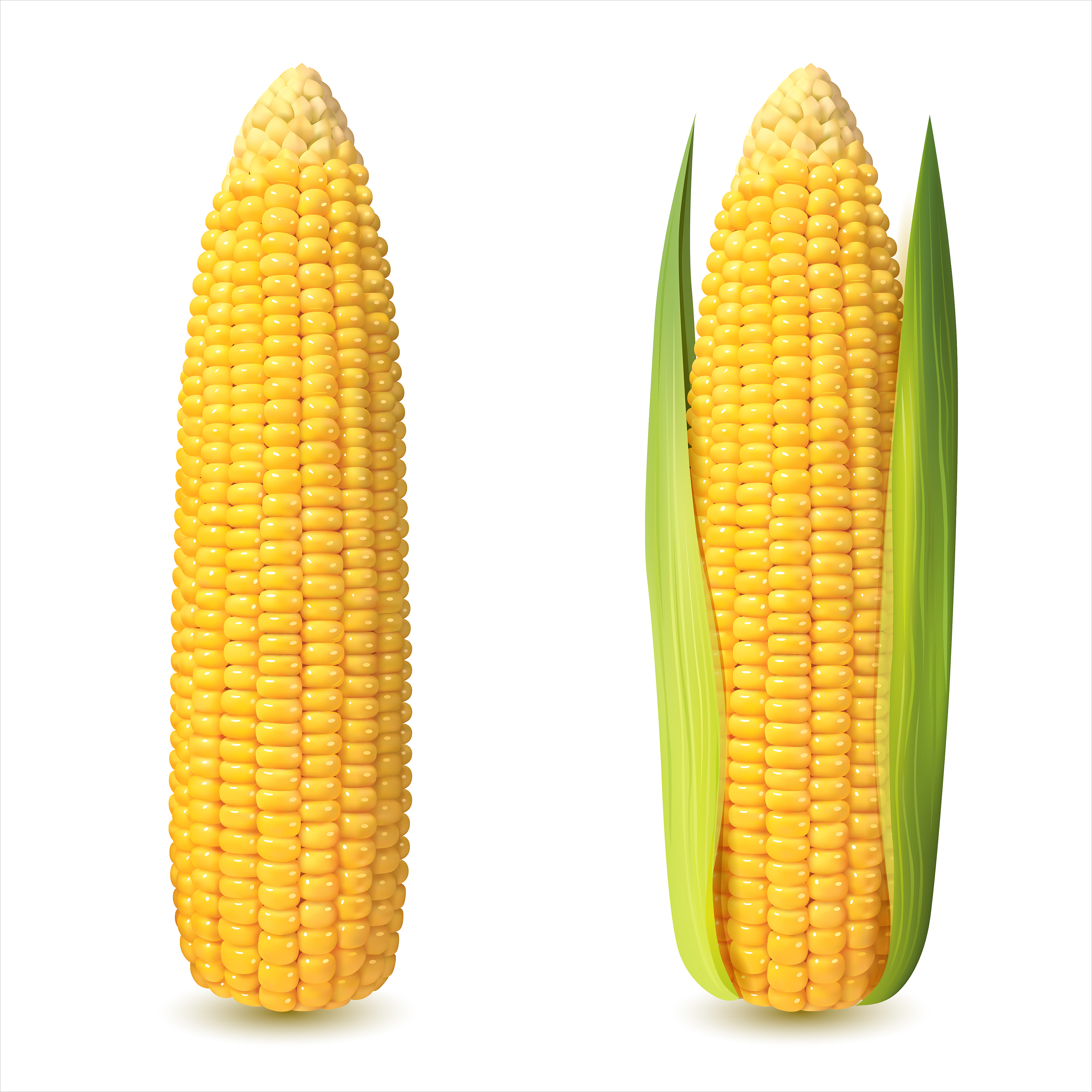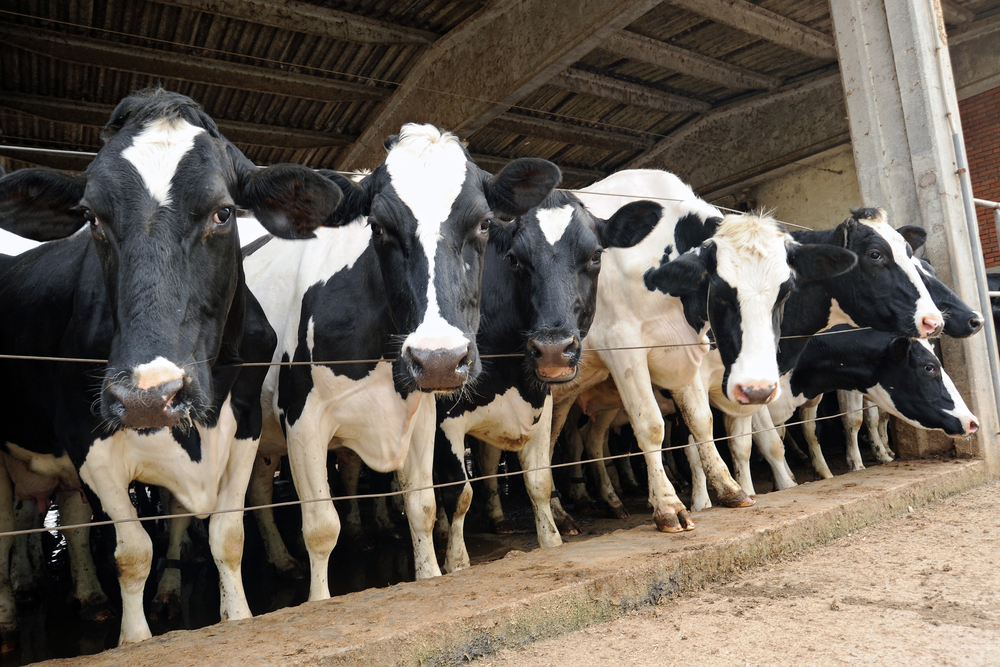Are You Consuming The 9 Most Genetically Modified Foods?
Wednesday, September 17, 2014
By Amanda Froelich, True Activist
You care about your health, and you’re also vigilant of the fact that foods that have been genetically modified have been shown to cause allergies, organ failure, and general toxicity.
Therefore it should be essential such scary franken-foods are avoided. To not only better your own health but prevent mineral-loss in soil from conventional growing methods, take care to buy the following foods organic, or avoid them altogether.
- Soy
Many food options are supplemented with soy, but it’s one of the most common foods to be grown genetically modified. (Current statistics state 93% of soy in the US is modified). Look at the ingredient list; if your non-organic product contains: soy flour, lecithin, or soy protein isolate and concentrates (protein shakes), it’s likely been obtained from a GMO source.
Many products also contain soy derivatives: Vitamin E supplements, tofu, cereals, veggie burgers, soy sausages, tamari, soy sauce, chips, ice cream, frozen yogurt, protein powder, margarine, soy cheese, crackers, breads, cookies, chocolates, candy, fried foods, shampoo, cosmetics, enriched flours, pastas, and even bubble bath.
Its use in so many products is concerning, so be sure to choose food products grown as sustainably as possible if you choose to include it in your diet.
 Corn
Corn
This staple may be the number one crop grown in the US, but nearly 88 percent of what’s harvested is genetically modified. It’s commonly found in products that utilize corn flour, corn starch, corn oil, corn sweeteners, and syrups. Some examples of such foods are: Vitamin C supplements, corn chips, candy, ice cream, infant formula, salad dressings, tomato sauces, bread, cookies, cereals, baking powder, alcohol, vanilla, margarine, soy sauce, soda, fried foods, powdered sugar, enriched flours, and pastas.
It’s quite clear: buy (or grow!) organic corn, or leave it out of your diet.
- Cotton
Cotton is a crop that is commonly grown genetically modified. Its use is mainly for oil and fabrics, but such products that may contain genetically modified derivatives include: clothes, liners, chips, peanut butter, crackers, and cookies.
- Canola
This food source is mainly utilized for oil. But products that may contain GMO derivatives include a wide variety of what you might buy at the supermarket: processed foods, chips, crackers, cereal, snack bars, frozen foods, canned soups, candy, breads, hummus, and some oil blends.
Great alternative options for baking or cooking are coconut and/or olive oil, which have lower cooking heat temperatures (lower heat temperature means high-heated foods can become carcinogenic) but boast many health benefits.
- Sugar Beets
These sweet beets are utilized for their sugar, but can cause nasty side effects if grown GMO. If any product does not specify “cane sugar” on their ingredient list, chances are you are obtaining sugar from sweets beets. Example products include: cookies, cakes, ice cream, donuts, baking mixes, candy, juice, and yogurt.
- Alfalfa
This green crop is the fourth largest to be grown in the US, but very often is genetically modified. While grown mainly to feed to cattle (therefore in all conventionally raised meat), it’s also common in pork, poultry, eggs, and dairy.
- Aspartame
This dangerous artificial sweetener should be avoided at all costs. Not only has it been shown to decrease the immune system and contribute to behavioral disorders in children, it’s genetically modified. Such sources it’s found in include: diet soda soft drinks, diet foods, and yogurt.
- Dairy

Cows raised for milking in conventional farms are commonly treated with the growth hormone rBGH. While its effect on humans is still being argued, it’s been clearly shown to negatively affect the cows injected with it.
You can find this questionable additive in all conventionally raised diary products: milk, cheese, yogurt, butter, ice cream, and whey.
- Papaya
While sweet and filling, 75% of the Hawaiian papaya crop is genetically modified to withstand the papaya ringspot virus. Because of this, it’s not recommended to consume the fruit unless it’s been sourced organically.
To prevent common health illnesses which are completely avoidable through dietary change and lifestyle choices, choose foods that are unprocessed, organically produced, and if possible, locally sourced. Avoiding the commonly genetically modified foods will serve you and your family’s health best in the present and future.
Remember, you can only be sure you are eating the above items completely GMO-free by purchasing them from farms certified-Organic, growing them yourself, or by attaining them from establishments verified by the Non-GMO Project.
Sources:
Naturally Savvy and Truth Activist
See more at: http://www.naturalblaze.com/2014/09/are-you-consuming-9-most-genetically.html#sthash.oes92Pxe.dpuf

